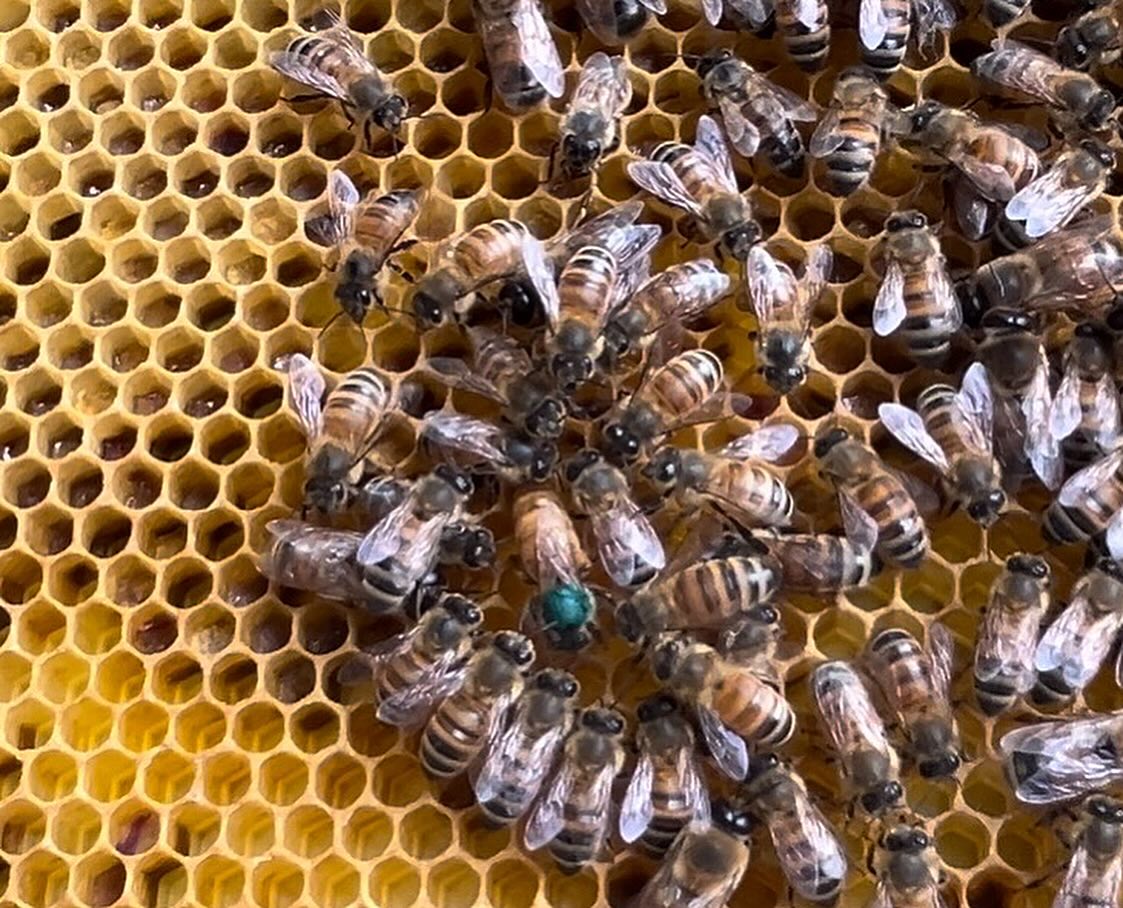- The critical role of bees in global food production and agricultural biodiversity
- The process of queen bee identification and its importance in beekeeping
- The ecological impact of bees on environmental health and pollution reduction
- The challenges bees face, including habitat loss and pesticides, and conservation efforts
- Practical ways individuals and communities can support bee populations
Bees, often known as tireless workers and key contributors to ecological well-being, are fascinating insects whose value extends far beyond their ability to produce honey. Yesterday may have marked World Bee Day, a celebration of these vital creatures, but their importance resonates every single day. The connection between bees, our food system, and the environment is profound and multifaceted, affecting everything from crop yields to biodiversity.
Bees are pivotal in food production, with about a third of the food we consume dependent on their pollination. Without them, many fruits and vegetables that stock our store shelves and fill our plates—such as apples, berries, beans, and even some coffee varieties—would become scarce and more expensive. Bees are true agricultural partners, transferring pollen amongst flowers and facilitating the growth of seeds and fruits.
The beekeeping community often employs unique practices to monitor and safeguard these invaluable insects. A common method involves marking the queen bee—a touch of harmless paint on the thorax—allowing beekeepers to easily spot her during hive inspections. The queen is the lifeblood of the hive, responsible for laying all the eggs that will sustain the colony. A marked queen means faster inspections and less disturbance to the bees—a crucial measure in maintaining a stable bee population.
Beyond their pollination services, bees are essential for maintaining ecological balance. They carry out a natural and vital role in the reproduction of many plants and flowers. This biodiversity supports various wildlife species and contributes to healthy, functioning ecosystems. Bees also help fight against air pollution by capturing airborne particles as they move from plant to plant.
Despite their small size, bees face monumental challenges, including habitat destruction, diseases, and pesticide exposure. These factors can weaken bee colonies, leading to their decline. The phenomenon known as Colony Collapse Disorder (CCD), where worker bees vanish, leaving behind their queen and food reserves, has raised global concern. Protecting these creatures has become an urgent priority for environmentalists, farmers, and governments.
Conservation efforts for bees require a multifaceted approach that includes habitat restoration, sustainable agricultural practices, and research funding to combat diseases and parasites harming bee populations. Governments and organizations around the globe are creating initiatives to protect pollinator health, recognizing that their decline would have cascading effects on the environment and humanity.
Everyone can contribute to the well-being of bees. Planting bee-friendly gardens, supporting local beekeepers by buying their honey and other related products, and advocating for pesticide-free farming practices are just a few ways individuals can make a difference. Additionally, constructing bee hotels and providing water sources in gardens can create safe refuges for solitary bees, which also play a significant role in pollination.
Bees are not merely insects buzzing in the background of our daily lives; they are sentinels of environmental health and key agents in an ecological system that sustains us. From farmers to city-dwellers, their pivotal role in our survival is unmistakable. By supporting their populations, we ensure the continuity of our natural world and food systems. The buzzing of bees is indeed a chorus of life—an anthem that must be preserved for future generations.
The story of bees is an ongoing narrative, with new chapters unfolding as research and conservation efforts deepen. The task ahead is clear: actively supporting and protecting these amazing insects not just on World Bee Day but every day. Through education, awareness, and direct action, the ripple effect of each positive step can help sustain bee populations and, in turn, the rich tapestry of life that thrives due to their hard work.
*****
Source Description
Yesterday was World Bee Day, but we believe these amazing insects should be celebrated every day! Check out our Queen Elizabee and a view of her workers buzzing about. Beekeepers will safely mark the queen in order to identify her easily. This makes for quicker hive inspections and less stress on the bees
Did you know a third of the world’s food production depends on bees? Bees pollinate a ton of crops including apples, soft fruits, beans and courgettes, which include tomatoes and strawberries. Bees are also vital for the preservation of of ecological balance, biodiversity in nature and help reduce pollution. All in all, they are fuzzy and buzzy and important to the environment 🐝

